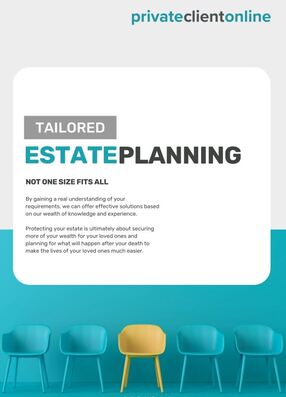Death and taxes
Careful planning is essential to ensure you don’t pay a significant proportion of your wealth to HM Revenue & Customs on your death.
Under current legislation, the first £325,000 of an individual's estate is not liable to inheritance tax (‘IHT’). For married couples and registered civil partners it is currently £650,000, if the full allowance is passed to the surviving spouse.
There is also the new 'Residence Nil Rate Band' to factor in. This new relief only applies, as the name suggests, to main residences and provides an additional £175,000 of relief per person. However, this relief is being phased in gradually and is currently standing at £100,000 per person.
If your estate exceeds these combined amounts, and you do nothing, your executors might have to pay a significant proportion of your estate to HM Revenue & Customs.
We can help you to mitigate the impact of IHT on your estate using a combination of one or more of the following:
-
Ensuring that your will is drafted correctly to save the maximum amount of tax using trusts
-
Utilising lifetime gifts
-
Utilising investments which qualify for relief from IHT
Although pension death benefits are broadly exempt from IHT, if they are passed to your survivor they will form part of their estate. We can offer solutions which allow your survivor access to your death benefits without them forming part of their estate.
Our service, provided in conjunction leading law firms, is designed to provide a wide range of different options to deal with these problems and the above examples are only a selection of the solutions at our disposal.
Contact us using the form below if you want to discuss your particular situation with one of our experts.


